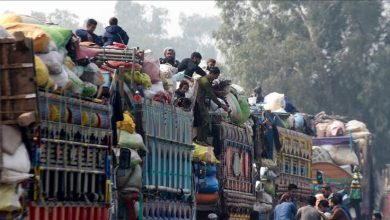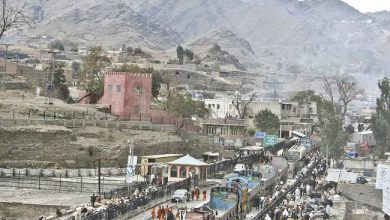
Pakistan intensifies pressure to expel Afghan refugees; concerns over the return of Taliban opponents to Afghanistan
Pakistan has resumed its efforts to expel Afghan refugees, setting a deadline of March 31. This move puts thousands of Afghans, including Taliban opponents and former collaborators of U.S. forces, at risk of returning to a country ruled by an oppressive regime.
Fatima (a pseudonym), a woman who fled Kabul after the Taliban’s takeover in 2021, is now facing the non-renewal of her visa and the threat of arrest in Islamabad. She told Deutsche Welle: “If our visa is not renewed, the police will arrest my family.” Her brother was detained during a police raid at their home but was released after presenting documents. Fatima, who is now in hiding, criticized the lack of cooperation from Pakistani authorities.
According to reports from human rights activists, since the beginning of 2024, over 18,000 Afghans have been forced to leave Islamabad and Rawalpindi, and at least 1,000 have been arrested. Pakistani lawyer Umar Gilani emphasized that Afghan refugees were verbally warned to leave the country by February 28.
Amin, 28, who had worked with U.S. forces in Afghanistan for years, is now waiting for resettlement in the United States. He says, “I dedicated my life to working with the U.S., but now I am living in uncertainty.” Nearly 20,000 other Afghans in Pakistan are also waiting for permission to enter the U.S., a process disrupted by the suspension of the resettlement program under the Trump administration.
Pakistan’s relationship with Afghanistan has soured in the past three years due to Islamabad’s claims that the Taliban supports militant groups (such as Tehrik-i-Taliban Pakistan). Pakistan has recently carried out border attacks on Taliban positions, resulting in civilian casualties. These tensions have turned Afghan refugees into a tool for political pressure.
The UN High Commissioner for Refugees (UNHCR) reported that 800,000 Afghans have been expelled from Pakistan since September 2023. Filippo Grandi, UNHCR’s representative in Pakistan, urged the country to continue its “tradition of supporting vulnerable refugees” and to separate refugee issues from political matters. The UN also expressed concern about the forced return of Afghans to a country where human rights are systematically violated.
Pakistan hosts around 2.8 million Afghans, many of whom have lived in the country for decades. However, the costly and complicated visa renewal process, coupled with escalating expulsion policies, has made the future of these refugees even more uncertain. Moniza Kakar, a refugee lawyer, says, “Families that have put down roots in Pakistan for years are now becoming victims of political tensions.”


